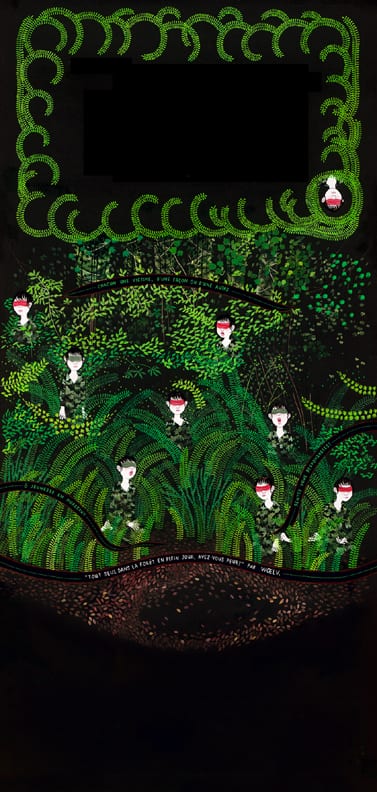Today on the site, Joe McCulloch brings his usual guide to the Week in Comics!, spotlighting the most interesting-sounding new releases to the direct market (this time including a manga biography of Tezuka and a new book by Boulet). As is his wont, he starts off with a short essay on the merits of Yo-Kai Watch.
Some have speculated that Yo-Kai Watch is a little too Japanese to entirely click overseas. I think it may be a little too perversely personal. What games like Pokémon GO leave as amusing subtext -- that invisible beasties are lurking around wherever you go, probably watching you as you pee -- Yo-Kai Watch makes gleefully explicit. Not only are there invisible beings everywhere in Yo-Kai Watch, but the supernatural powers manifest from their distinct personalities have a direct effect on YOUR psychological state. There are yōkai that make you quarrelsome. There are yōkai that make you depressed. Or happy. Or prone to spending money on useless junk. The chosen few, however, can use the "Yo-Kai Watch" to make the invisible visible, and negotiate with these creatures - thereby perfecting the psychology of society at large. Basically, it is a fable of the regimented roles people are expected to play in Japanese society, which is why the protagonists are children: they can run and play and navigate the roles of society, not yet old enough to face the expectations of fitting in.
Meanwhile, elsewhere:
—The Blerd Gurl writes about diversity at Marvel.
As most of you in the comic book world know, this week Marvel announced that Tony Stark a.k.a. Iron Man will be replaced with a young African-American girl named Riri Williams. I applaud Marvel’s efforts to give another black female character her own comic. Riri joins the ranks of Lunella Lafayette of Moongirl and Devil Dinosaur and Anwen Bakian as Nova along with veteran Storm of the X Men as black female characters recently having their own comic book series. However, I am not as excited as I originally was when I first heard the news, as there are no black women involved with the creation or shaping of this character.
This is going to be a bit long, but I ask you to hear me out.
—Jason Zinoman at the New York Times writes about The American Bystander.
The American Bystander, whose second issue came out last week and which can be ordered online, does not just belong to the tradition of defunct magazines like The National Lampoon and Spy. Its nostalgic, lightly witty style evokes influences that have been dead even longer, like the raconteur Jean Shepherd and the sophisticated stylist Robert Benchley. In an era when so much comedy is boisterous and engaged with the world, The American Bystander’s humor is understated and escapist, steering clear of topicality and political jokes. The only time the new issue mentions Donald J. Trump is to illustrate how 30 years of satire have failed to diminish him. Internet headlines may boast about political satirists destroying and eviscerating their subjects, but this magazine has different ambitions, and while they may seem more modest, don’t be fooled. Call it comedy for comedy’s sake.
—And Bill Boichel responds to a recent post by Tom Spurgeon.
The books chosen in the lists that Tom references are simply indicative of the broadening and shifting of the variety, options and tastes now on offer in entertainment comics. These books are simply the Archie, Richie Rich, Dennis the Menace, Spider-Man, Fantastic Four, Superman, Batman, Tarzan, Donald Duck, Uncle Scrooge, Bugs Bunny, etc. of today: a variety of entertainment for different tastes and interests whose primary motive is being successful: generating sales and profits, revenue for the publishers and income for their creators...






